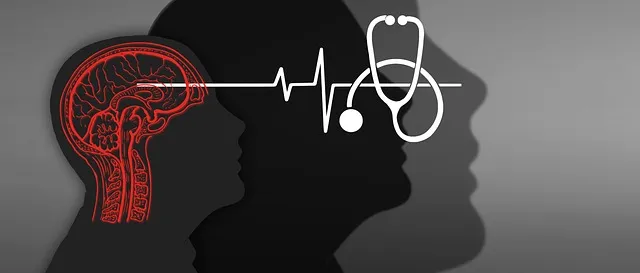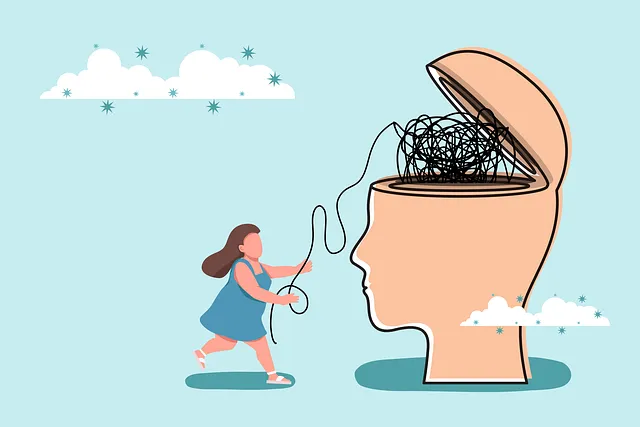Lakewood Kaiser Permanente psychiatry offers comprehensive social skills training as a core component of mental health care. Recognizing the deep link between social interactions and psychological well-being, their programs address isolation and worsening symptoms caused by many mental health conditions. Through exercises like Mental Wellness Journaling, group discussions, role-playing, and mindfulness practices, patients develop tools for effective communication, empathy, healthy relationships, stress management, and conflict resolution. Personalized risk assessments guide tailored curricula, empowering individuals to navigate social situations with confidence, challenge stigma, strengthen connections, and enhance overall well-being.
Social skills training is a powerful tool for improving mental health outcomes, addressing a critical gap in traditional therapy. This comprehensive guide explores the intricate link between social proficiency and psychological well-being, highlighting the innovative work of Lakewood Kaiser Permanente Psychiatry. We delve into the key components of effective programs, showcasing their benefits and real-world applications for individuals navigating various mental health conditions.
By understanding these strategies, you’ll uncover a path to enhanced social interactions and improved mental resilience.
- Understanding the Connection Between Social Skills and Mental Health
- The Role of Lakewood Kaiser Permanente Psychiatry in Social Skills Training
- Key Components of Effective Social Skills Training Programs
- Benefits and Real-World Applications for Individuals with Mental Health Conditions
Understanding the Connection Between Social Skills and Mental Health

Social skills training is a crucial aspect of mental health care, as it explores the intricate connection between social interactions and psychological well-being. Many mental health conditions can impact an individual’s ability to navigate social situations, leading to feelings of isolation and further exacerbating symptoms. At Lakewood Kaiser Permanente psychiatry, we recognize that improving social skills can significantly contribute to overall mental wellness.
The link between social skills and mental health is profound, especially for individuals who have experienced trauma or struggle with anxiety and depression. Effective communication, empathy, and building healthy relationships are essential tools to foster resilience and coping mechanisms. Through Mental Wellness Journaling Exercise Guidance, our trained professionals help patients uncover and develop their social skills, enabling them to engage in meaningful connections and enhance their overall quality of life. Additionally, offering Trauma Support Services tailored to cultural sensitivity in mental healthcare practice ensures a safe and supportive environment, encouraging individuals to build confidence in social settings.
The Role of Lakewood Kaiser Permanente Psychiatry in Social Skills Training

The Lakewood Kaiser Permanente Psychiatry department plays a pivotal role in offering comprehensive care that extends beyond medication management. They recognize the intricate link between social functioning and mental health, thus integrating social skills training into their treatment plans. This approach is particularly beneficial for individuals grappling with mental illness, as it equips them with essential tools to navigate interpersonal interactions successfully.
By incorporating Burnout Prevention Strategies for Healthcare Providers and Mind Over Matter Principles, the psychiatry team at Lakewood Kaiser Permanente goes beyond traditional therapy. They empower patients to challenge stigma associated with mental illnesses through group discussions, role-playing exercises, and mindfulness practices—all tailored to strengthen social connections and enhance overall well-being. These strategies not only improve symptom management but also foster a sense of community, which is crucial for long-term recovery.
Key Components of Effective Social Skills Training Programs

Effective social skills training programs for mental health conditions are multifaceted, incorporating key components that cater to diverse needs. At Lakewood Kaiser Permanente psychiatry, these programs typically start with an individual risk assessment tailored to each patient’s unique challenges and goals. This initial step involves identifying specific social situations that trigger anxiety or other distressing symptoms, enabling the creation of personalized strategies.
The core curriculum often focuses on teaching Mind Over Matter principles, empowering individuals to manage their responses to stress and anxiety-provoking scenarios. Techniques such as cognitive reframing, relaxation exercises, and mindfulness practices help participants develop a more positive outlook and enhance their emotional regulation skills. Through role-playing and group discussions, trainees gain practical experience navigating social interactions with confidence, fostering better communication and interpersonal connections.
Benefits and Real-World Applications for Individuals with Mental Health Conditions

Social skills training offers immense benefits for individuals navigating mental health conditions, providing them with tools to enhance their daily interactions and overall well-being. By participating in programs designed to foster social connections, individuals can develop essential communication strategies that promote self-expression, assertiveness, and emotional regulation. These skills are pivotal in various real-world scenarios, such as improving relationships with family and friends, navigating work environments, and managing stressors effectively.
For instance, Stress Management Workshops Organization often incorporates techniques like mindfulness exercises and conflict resolution training. The former helps individuals manage anxiety and maintain composure in social settings, while the latter equips them to handle interpersonal challenges constructively. Such workshops, hosted by reputable institutions like Lakewood Kaiser Permanente psychiatry, empower participants with confidence-boosting strategies tailored to their unique needs, enabling them to lead more fulfilling lives despite mental health challenges.
Social skills training, as facilitated by institutions like Lakewood Kaiser Permanente Psychiatry, plays a pivotal role in enhancing the lives of individuals struggling with mental health conditions. By focusing on key components such as communication, empathy, and emotional regulation, these programs empower people to navigate social interactions more effectively. The benefits are profound, leading to improved relationships, increased self-confidence, and better overall mental well-being. Thus, integrating social skills training into the treatment plan for mental health conditions is a powerful strategy that can significantly improve quality of life.






